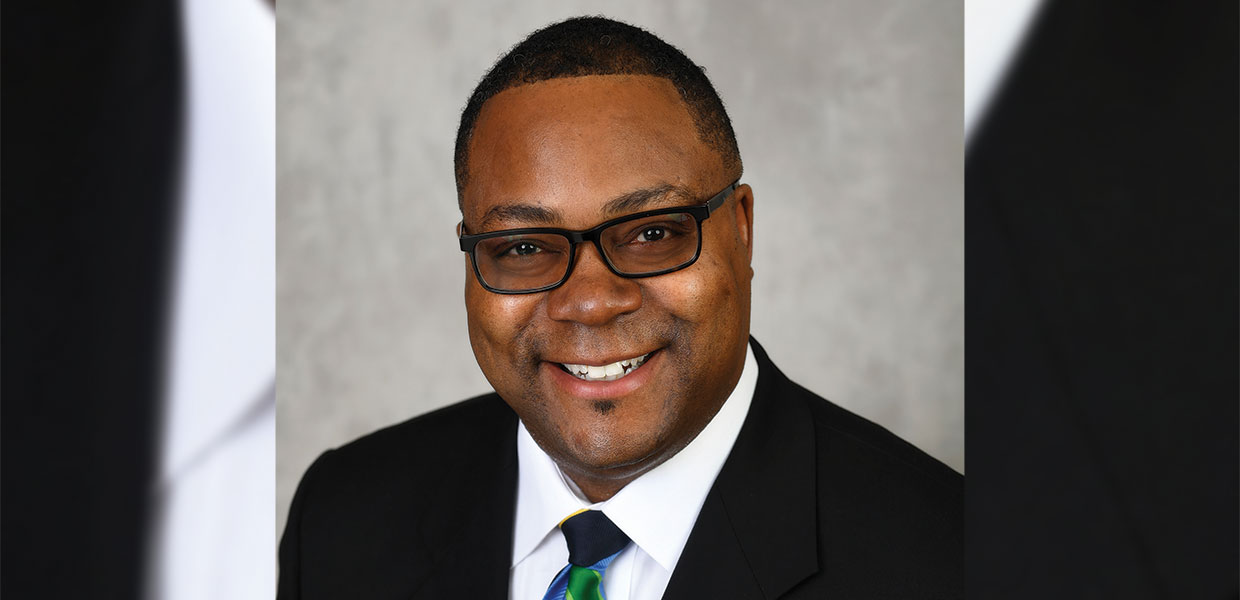
We can do it, but should we?” This is a question Andy Lampkin, Ph.D., associate professor of bioethics at Adventist University of Health Sciences (ADU), often considers.
Bioethics is concerned with ethical issues in healthcare, ranging from abortion to healthcare policy. Through his teaching of bioethics at ADU, students are exposed to a broad range of moral dilemmas that may be faced by a healthcare provider, and given the tools to work through and provide the best solution for the patient without compromising their values and beliefs.
Lampkin challenges students in his classes by introducing current issues in bioethics, and helping them understand the arguments from multiple perspectives. Utilizing the Socratic method, Lampkin keeps the discussion going by asking questions that force them to think about different positions, not just their own, and by pushing them to think past their initial reaction.
Lampkin stresses the importance of not simply telling students what to think, but rather how to think through a situation, as the circumstances will be different every time. In doing so, Lampkin helps the students develop a moral framework for issues they may encounter in their healthcare careers.
Lampkin is passionate about the idea of moral discernment and the ability to think ethically. As healthcare technology continues to develop, students will encounter new bioethical dilemmas. Through moral discernment, students will be able to ethically work through complex issues they didn’t encounter in the classroom. Students are then able to make decisions supporting the mission of extending the healing ministry of Christ.
In addition to teaching, Lampkin has participated in two Adventist Bioethics Conferences, with a third planned for May 2018. The conferences bring Adventist bioethicists and leaders from the five North American healthcare systems together with leaders of the Adventist Church to discuss current ethical topics and concerns in health from an Adventist perspective.
“As a faith community, we should have a distinctive voice that will clarify and advance the Adventist position on various ethical issues,” said Lampkin. To reach that goal, he’s working with members from the conference to form an official Adventist Bioethics Consortium to provide guidance, so Adventist healthcare systems can respond consistently to common ethical issues. The Consortium would also provide continuing education, consultation, and training for Adventist bioethicists.
Through teaching his students moral discernment, Lampkin is giving back to the community. “What does this practice say about my faith commitment? How am I living out my deeply held religious values, my cherished commitments?” Lampkin asks. The future patients of his students can trust their provider will make the best decisions for them in a way that supports the values of everyone involved.
With a mission-focused institution like ADU, it’s about teaching students what those moral and theological dilemmas will look like in the real world — in their future careers as healthcare providers. Developing skilled professionals who live the healing values of Christ means teaching them both compassion and critical thinking, the central lesson of Lampkin’s course.
Adventist University of Health Sciences | April 2018



Comments are closed.